Forum Home > GMAT > Quantitative > Problem Solving (PS)
Events & Promotions
| Last visit was: 26 Jul 2024, 17:41 |
It is currently 26 Jul 2024, 17:41 |

Customized
for You
Track
Your Progress
Practice
Pays
08:30 AM EDT
-08:30 AM EDT
08:30 AM PDT
-09:30 AM PDT
09:55 AM PDT
-11:00 AM PDT
08:00 PM PDT
-09:00 PM PDT
05:55 AM PDT
-12:30 PM PDT
07:00 PM IST
-08:00 PM IST
09:00 PM IST
-10:00 PM IST
| FROM Stacy Blackman Consulting Blog: SMU Cox Application Deadlines for 2020-2021 |
 Are you interested in the SMU Cox MBA? The 2021 application is now live. Here are the SMU Cox application deadlines for the 2020-2021 admissions cycle. SMU Cox Application Deadlines Round 1 Application due: October 12, 2020 Round 2 Application due: November 20, 2020 Round 3 Application due: January 4, 2021 Round 4 Application due: March 1, 2021 (final deadline for international students) Round 5 Application due: May 3, 2021 (rolling admissions after May 3rd) *** For more information on applying, please visit the SMU Cox admissions site. If you need guidance on your SMU Cox application or wish to discuss your MBA plans, reach out for a complimentary analysis of your candidacy. We’re here to help! The post SMU Cox Application Deadlines for 2020-2021 appeared first on Stacy Blackman Consulting - MBA Admissions Consulting. |
| FROM Stacy Blackman Consulting Blog: Tuesday Tips: SMU Cox MBA Application Essays and Tips 2020-2021 |
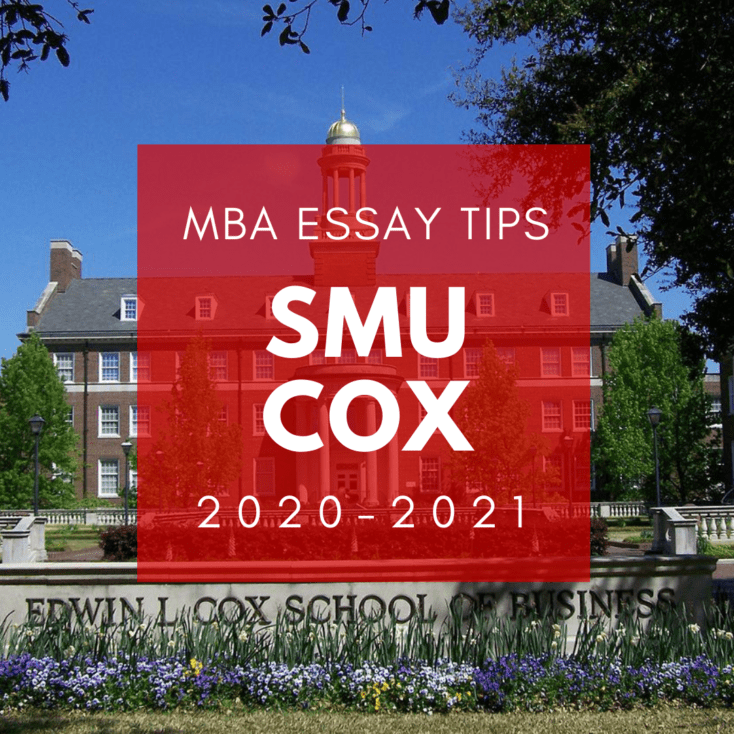 The SMU Cox MBA application essays focus on getting to know you better. As an applicant to the SMU Cox School of Business, you will be part of a diverse student body. Indeed, many students are looking to expand their choices beyond the top 10 business schools or have a regional interest in Texas. Based in Dallas, SMU Cox has ties to a vibrant business community. Companies that recruit from SMU Cox include the major consulting firms, banks, along with consumer companies like Target and Starbucks and tech companies like Texas Instruments and Amazon. In general, as you prepare these SMU Cox MBA application essays, keep “Why MBA” top of mind. Also, think about your own desires for the program. If you are considering an MBA admissions consultant, contact us to learn more about how Stacy Blackman Consulting can help! To learn more about the SMU Cox School of Business, visit the program website. REQUIRED ESSAY 1 Please describe your immediate post-MBA career goals, including the target industry, sector, and/or organization. Why are you interested in pursuing a career in this particular area? (250 word limit). This SMU Cox MBA application essay focuses on your future goals. Therefore, you will need to carefully explain why you need an MBA and describe your career goals. First, evaluate your past experiences and what you learned in your undergraduate education. Next, describe your future career dreams. If you are unsure about what you want to do after your MBA, perhaps research can trigger some ideas. For example, more MBA graduates are pursuing careers in technology and consumer products than did so in the past. If you consider companies and career paths outside of the traditional MBA feeder industries, what areas might you pursue? When you have identified your post-MBA career path, then you will want to describe the role in specifics. What industry are you targeting and why? Describe what you consider the most appealing companies. And, which department do you see yourself working within? This is an excellent essay in which to add some resume highlights. Also, use details to showcase specific skills that will explain your accomplishments. REQUIRED ESSAY 2 Learning from one another’s experiences is a tenet of the MBA experience. As a member of the SMU Cox MBA class, how do you plan to contribute to the development of your classmates, whether personally or professionally? (250 word limit) Your ability to add something unique to the community is crucial, and this SMU Cox MBA application essay focuses on that topic. This is a great place to mix personal and professional angles. Because you concentrate on your career in the first essay, this one can touch upon other aspects. For example, have you been involved with a volunteer activity? If so, this is an ideal essay to describe what you did. Indeed, one core value for SMU Cox is helping others. For this reason, if you have a particular focus or passion for community service, this is the essay to describe it. Finally, know yourself and know the school. Do school research by visiting campus or talking to students or alumni. As you learn more about the school, you can tailor your contributions to be a fit with the community. REQUIRED ESSAY 3 Growth is often the product of experience. Please discuss a time when you experienced professional failure. How did this event impact your professional outlook or affect your future work? (250 word limit). At Stacy Blackman Consulting, we have observed that, above all, character prevails. As a result, part of showing character is persisting through failure. Often, you discover your true nature by your reaction to difficulty. Think about the moments you can remember with clarity over the past three years. In many cases, failure leads to success. Can you think of a time when failure triggered a critical change? For example, your failure may have been with a team at work. As a result, you learned more about how to lead or be effective in a team. Ensure you take the time to talk about lessons learned from the failure. In conclusion, as you draft this essay, think about micro-stories you can craft vividly to bring your story alive. What did your failure feel like? What did you hear, smell, or say? Those details will help the reader understand your perspective. The post Tuesday Tips: SMU Cox MBA Application Essays and Tips 2020-2021 appeared first on Stacy Blackman Consulting - MBA Admissions Consulting. |
| FROM Stacy Blackman Consulting Blog: B-Schooled Episode #18: Career Goals |
 What do you want to be when you grow up? When you pull together your MBA application materials, you might find yourself stumped (in a few different ways) about how to explain your career goals. Don’t fret. SBC is here to help. This episode of the B-Schooled podcast covers:
B-Schooled is available on most major podcast apps, including: Apple Podcasts Spotify Stitcher TuneIn Please be sure to subscribe to B-Schooled so that you don’t miss a thing. If there’s something you’d like for us to cover in a future episode, please email podcast@stacyblackman.com. We’d love to hear from you! The post B-Schooled Episode #18: Career Goals appeared first on Stacy Blackman Consulting - MBA Admissions Consulting. |
| FROM Stacy Blackman Consulting Blog: Reducing Digital Distractions |
 “Fresh ideas from the Blacklight” SBC’s Weekly Newsletter for Professionals If you’re one of the millions of people fighting a constant battle against digital distractions, Stanford MBA and former GSB lecturer Nir Eyal wants you to know that all hope is not lost. In his latest book Indistractable: How to Control Your Attention and Choose Your Life, Eyal offers easy-to-implement tips to help us stay focused at home and work. “Distraction is always an unhealthy escape from reality,” Eyal explains. “I take issue with the current narrative that technology is hijacking your brain and that it’s addictive. It promotes learned helplessness: We stop trying to change something because we think there’s nothing we can do.” Instead of blaming technology or our devices, he says we need to deal with the root causes of our digital distractions, whether it’s boredom, anxiety, burnout, or plain ol’ loneliness. “By identifying an uncomfortable internal trigger…and exploring the sensation with curiosity, we can more easily disarm it,” Eyal notes. Digital distractions lurk all around us The author also discusses something he calls “liminal moments.” These are the transitions happening throughout the day when we’re changing tasks. For example, when you check out what’s trending in TikTok while waiting for an elevator. Eyal has no beef with that, per se. A problem arises when you’re still glued to your phone a half-hour later when you’re back at your desk. Now, he says, “You’ve become distracted as opposed to working on what you wanted or needed to. That’s where these liminal moments are dangerous.” There’s nothing wrong with scrolling Instagram, playing a video game, or watching Netflix, if that’s what you intended to do. Taking a break can be good for us. It’s when we do these things unintentionally that we get into trouble. When you’re ready to get serious about reducing some of the digital distractions that plague your daily life, Square one starts with—you guessed it—your phone. The 4 R’s of taming your phone According to Eyal’s book, the first step toward becoming indistractable is to implement the following strategies.
Ample studies support Eyal’s contention that notifications distract us, even if we don’t check them out right away. Evidently, mere awareness of the alert can hurt our performance on an attention-demanding task, researchers from Florida State University found. You’re wondering who messaged you, or what exciting thing awaits but one click away. Just having your phone nearby can distract you and interfere with your work performance.  Eyal has a simple solution for anyone struggling to avoid the siren’s call of app notifications, especially those from group chats. Instead of responding as messages come through, schedule a block of time to catch up on the conversation. The same approach works for Facebook, Instagram, Google News, or any other app that diverts your attention. Stop being a hostage to notifications. From now on, you control the moments when you seek out information/diversion. Schedules for the win Eyal also admits he’s a huge fan of schedules. So much so, he credits weekly scheduling sessions with his wife to divide domestic responsibilities for saving his marriage. If productivity is your goal, the timeboxing method can help you reach it. As this article in Harvard Business Review explains, constant interruptions torpedo both our happiness and productivity. With timeboxing, you decide what to do and when, and then block out all distractions during that period. As a matter of fact, timeboxing ranked number 1 out of the 100 most useful productivity tips. Users swear by it because they find the control and demonstrable accomplishments addictive. “We perform better under constraints. Schedules give us a framework, while nothingness torments us with the tyranny of choice,” Eyal asserts. “An unscheduled day isn’t freedom. Rather, it’s a recipe for regret. When we don’t plan time in our day to do what matters, our life quickly falls out of balance.” *** Did you enjoy this post about reducing the digital distractions in your life? It originally appeared on the Blacklight, our weekly newsletter for professionals. At the Blacklight, we aim to illuminate with every dispatch that lands in your inbox. If you’re thirsty for guidance to help you slay it at work or as a student and move your goalposts closer, sign up today! The post Reducing Digital Distractions appeared first on Stacy Blackman Consulting - MBA Admissions Consulting. |
| FROM Stacy Blackman Consulting Blog: B-Schooled Episode #19: Before You Submit in Round 1 |
 Round 1 deadlines are just around the corner, and nerves tend to get the best of many candidates. This episode of the B-Schooled podcast covers common last-minute traps that MBA applicants fall into and how to avoid them, as well as what you should do and not do before submitting. Listen to B-Schooled episode #19 here, or on any of the podcast apps listed below. B-Schooled is available on most major podcast apps, including: Apple Podcasts Spotify Stitcher TuneIn Please be sure to subscribe to B-Schooled so that you don’t miss a thing. If there’s something you’d like for us to cover in a future episode, please email podcast@stacyblackman.com. We’d love to hear from you! The post B-Schooled Episode #19: Before You Submit in Round 1 appeared first on Stacy Blackman Consulting - MBA Admissions Consulting. |
| FROM Stacy Blackman Consulting Blog: The Lure of an MBA in Europe |
 As business becomes more global, applicants may ask themselves if they should consider heading abroad for an MBA in Europe. In many cases, the answer will be yes. Recruiters overwhelmingly agree that candidates with international experience outperform those without. The best business schools attract international students and faculty of the highest caliber. Plus, in terms of rankings, elite European programs perform as well as many top programs in the United States. There are several factors to consider as you weigh whether an MBA in Europe will help you reach your career goals. From cost to duration to brand reputation and more, keep the following in mind as you make your decision. Why do an MBA in Europe? Most of our clients targeting EU MBA programs cite these compelling reasons. First, the programs boast a high return on investment (ROI), as most last just one year. For example, you can complete an MBA program at INSEAD in as little as ten months. Compared to a two-year or US MBA programs, lower tuition and opportunity costs look enticing. But even for the longer EU MBA programs, such as London Business School and IESE Business School in Spain, tuition fees are lower. In a study that SBC conducted across its EU applicant pool, shorter duration and lower tuition costs were reasons endorsed by 48% of respondents. Secondly, EU MBA programs are more global in nature, compared to even the most “global” US program. They attract students who want a truly international experience with their education. They also attract professionals planning to work in Europe after their studies.  We consider an MBA in Europe an excellent complement to an undergraduate degree earned in the US. It positions students for global careers better than doing both college and an MBA in the same country or continent. If your professional goal is to live and work in Europe, pursuing an MBA abroad is arguably the best introduction to local business life. Keep this fact in mind: INSEAD, LBS, and HEC Paris place less than 10% of graduates into US-based employment roles. Meanwhile, they place 50-to-66% of grads in Europe. Work Visas The new two-year, post-study work visa, which returns to the UK for international students graduating in summer 2021 or later, will make it easier for new MBAs to find jobs—and for employers to hire them. This is incredibly valuable at a time when the US’s political climate, and recent H1B Visa restrictions, have deterred some internationals from venturing to the US. An MBA in Europe suddenly seems much more attractive.  Specialized Industry Recruiting MBA hopefuls may also favor specialized industry recruiting where the EU has the edge over the US. While the US is the technology industry hub (tech is still a nascent market in the EU), Europe dominates the fintech industry. London is considered the fintech capital of the world because of the banking passport legislation that governs Europe and standardizes products across the 27 countries. Europe has an advantage over the US in the fintech industry because the US must contend with legislation that varies by state and can be an impediment to digital banking. Competition For some MBA applicants, the relative competitiveness of the schools is another factor. We had a client last year who experienced rejection from every US program to which she applied, but got accepted to LBS. Coronavirus and Trump/visa issues may have impacted this and forced US schools to change their approach. Generally, EU schools are more open to having larger percentages of international students, particularly from Commonwealth countries (e.g., India). Meanwhile, US schools are more competitive for those with overrepresented backgrounds in the applicant pool. Current Demand for the MBA Degree MBA demand is counter-cyclical to the economy. Therefore, demand has skyrocketed. Opportunity costs have lowered. MBA applicants typically are debt-free in their twenties and can incur the expense of the education. Some young professionals see the MBA as an escape from unemployment or furlough status. But, at a deeper level, many of the MBA applicants we’ve talked to in recent months tell us that they need the sophisticated knowledge inherent to MBA programs to navigate the dynamic business changes ahead. MBA hopefuls need the degree to gain the tools to thrive in the radically-changing business landscape. Technology, supply chain, and other disciplines will become reimagined within the business school environment. That is a huge lure. It’s an exciting time for young, MBA-aspiring professionals. Many see the MBA classes of 2022 and 2023 as symbolizing new beginnings and hope. 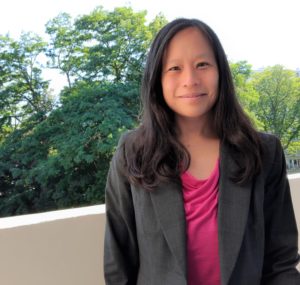 Cathy, an INSEAD MBA graduate on our team, believes the global crisis may jolt young professionals towards more meaningful careers. The MBA experience can enable that purpose-driven path. “Pre-INSEAD, my goal was to enter social impact investing after graduating,” she shares. “At that time, the economic downturn did reinforce the idea of pursuing a meaningful career. My INSEAD experience further encouraged me to do so, with its emphasis on its community being a ‘Force for Good’.” Demand will continue to increase significantly for the top MBA programs. More than that, the caliber of the applicant pool with respect to diversity, leadership, industry, and career visions will skyrocket in the application season that is upon us. Both quality and quantity are about to be re-defined. Which EU Programs Stand Out? Brand and ranking almost always correlate to applicant demand, strength of recruiting, and ROI. INSEAD, London Business School, Oxford’s Saïd Business School, and Cambridge’s Judge Business School are in higher demand internationally. While INSEAD and LBS are undoubtedly the best ranked, programs like HEC Paris, SDA Bocconi in Italy, and IESE shine in each of their respective home markets/countries.  HEC has risen lately in the ranks. The Financial Times 2019 rankings had them #1 European MBA program & #3 globally, and #1 EMBA. The FT rankings are considered the most transparent and respected. So, if someone plans to work in France, HEC Paris has a fantastic network and can tap into its ‘premier’ undergraduate network. Imperial College Business School in London is also another one to watch, especially for innovation and science/engineering. They’re very active in the B-school community, organizing the annual EdTech forum and leading in Europe on flexible offerings. Like Oxford and Cambridge, Imperial benefits from the strong foundation and brand of the underlying university. The “pure business school approach” of LBS and INSEAD are enticing to many MBA applicants. But Imperial, Oxford, and Cambridge leverage the cross-university collaboration quite well to help boost their appeal. How Can Candidates Find the Right MBA in Europe? Read, read, and read some more. Pore over the websites of all schools that interest you to learn about the curriculum, teaching methods, professional clubs, extracurricular offerings, and student life. Sign up to receive email announcements with admissions updates and information. As you consider earning an MBA in Europe, think diligently about fit with personal and professional goals. Consider ranking reports and brand reputation, which is by far the most influential reason for selecting an MBA program across the applicant pool. The key factor is career potential. Business schools have developed comprehensive career services, but participants themselves should propel their success. Take time and effort to set clear career goals before applying for a business program. Based on those goals, choose the most appropriate business schools considering all that they can offer: curriculum, network, learning environment, business exposure, and career services, among other aspects. Business schools care deeply about your success, but ultimately, your career and lifestyle are your responsibility.  Next, location and program length will influence your decision. Post-MBA career preferences should drive your location choices. Professionals who want to work in the EU, therefore, should focus on doing their MBA in Europe. Finally, be self-aware. The right program varies by the candidate. Much depends on the student’s professional profile and career aspirations, as well as what they do once at the program. Fit with and performance at the program are essential. For example:
It’s too soon to know what changes will occur concerning the sudden economic crisis. For now, we’ve seen that MBA grads continue to flock to lucrative and popular consulting. Likewise, tech has continued to see a lot of growth and interest among MBAs, especially in product manager and product marketing manager roles. MBAs look for growth opportunities these days, and tech companies can offer that growth and development. Healthcare also continues to expand with roles in administration and health technology. Fintech will surge as well, because of the need to overhaul into contact-free payment processes. The State of Company Sponsorships Sponsorship from companies has decreased due to budget concerns. We’ve heard that companies such as Deloitte, which has had a robust GSAP sponsorship program for full-time MBA applicants, has heavily curtailed their sponsorship plans as a result of COVID-19. We anticipate far fewer companies will sponsor going forward, as it’s an extension of a trend underway since 2008. Instead of company sponsorship, we expect applicants to value and actively seek an MBA tuition scholarship as a way to lower costs. Another factor that explains decreasing company sponsorship is that applicants often don’t want to return to the same employer post-MBA. Many young professionals are now eager for higher impact roles and hope to change to a new environment after the MBA.  Transformation, the MBA, and COVID-19 MBA programs are the epicenter of innovation and adaptability and have effectively pivoted with virtual social and academic-rich programming. In many cases, the virtual method can enhance the experience. It offers more robust access to experts, recruiters, mentors, change-makers, etc., across the world who can easily Zoom to educate the next generation. “MBA experiences themselves are meant to be transformative,” says Cathy, our SBC INSEAD MBA expert. “What better place to be challenged, and to develop professionally and personally, than in an environment conducive to collaboratively resolving issues with sustainable solutions, and with creativity and intelligence?” she adds. For example, “In the INSEAD community, the pandemic has already sparked constructive solutions to tackle the spread and even combat COVID-19. The pandemic is strengthening the MBA community and experience. Regarding issues of racial equality, these are the impetus for the important discussions that take place between cohorts and professors, faculty, and staff, further unifying the networking and connections across the MBA cohort.” There are numerous advantages to seeking an MBA in Europe. You might be motivated by the lower tuition cost, strong ROI, international network, cultural diversity, or even language learning options. A cultural immersion experience of this kind is not without its challenges. But most participants would agree that studying abroad is not just financially rewarding, but personally fulfilling as well. The post The Lure of an MBA in Europe appeared first on Stacy Blackman Consulting - MBA Admissions Consulting. |
| FROM Stacy Blackman Consulting Blog: Advice for MBA Applicants from an Overrepresented Demographic |
 If there’s one overarching trend we’ve seen in our nearly two decades of admission consulting, it’s the move toward greater diversity at the top MBA programs. Not long ago, professionals from banking and consulting dominated business school classrooms. Most students were white males. Now, programs strive for diversity across several buckets: gender, ethnicity, industry, function or role, home country — even sexual orientation. What does that mean for candidates working in consulting or financial services? Or, for MBA applicants in overrepresented demographic buckets? It means you must work hard to stand out and prove you have something valuable to bring to the table. In other words, demonstrate that what your classmates will learn from your personal and professional experiences outweighs the fact that you aren’t contributing to a more diverse environment in the traditional ways. For Applicants from an Overrepresented Demographic, Stats are Not Enough A high GPA and a high GMAT score are never bad things, of course. But they don’t guarantee admission, either. The MBA application process is a self-selecting one in many ways. People pursuing b-school have done well in school, on tests, and in their careers so far. The majority of applicants deserve to get in “on paper.” While your stats tell the admissions committee whether you can likely handle the rigor of their program, they don’t reveal anything about how you work with others. Nor do they convey what leadership roles you’ve taken, what motivates you, or what your future goals are. Unlike undergraduate colleges, MBA programs heavily rely on students teaching each other. Business schools expect high levels of spirited and interactive discussion in class, with students sharing their past experiences for the benefit of others. Everyone who applies to business school should try to communicate the unique aspects of their candidacies that their classmates will learn from. But it’s exponentially more critical that applicants from overrepresented demographic buckets do so. Tap Into the Diversity of Experiences You’re going to want to pull from your volunteer, extracurricular, and leadership experiences across all facets of your life. Talk about the places you’ve traveled to and what you did or learned there. Maybe you have a defining moment to share that led to your future career goals. You will want to highlight anything you are involved with at work that might be related to recent news headlines, as admissions committees love it when students can share firsthand experience with buzzy topics. In the end, MBA applicants from overrepresented demographic buckets still get into top business schools across the country every year. So, if you’re in that category, there’s no reason to lose hope. But you should look objectively and realistically at your candidacy and perhaps widen the net of schools you’re considering. Try to figure out what it is that your classmates would learn from you, and then focus on incorporating those themes into your materials. You can do it! 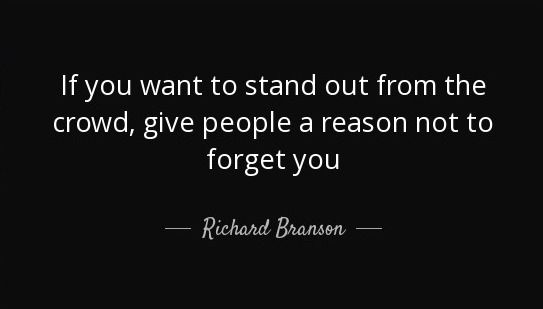 Are you a reapplicant? Don’t miss this B-Schooled episode made just for you — subscribe today on Apple Podcasts, Spotify, Stitcher, or TuneIn. Until next time, The team at Stacy Blackman Consulting *** If you enjoyed this post, please sign up for the SBC newsletter, where you’ll receive our expert advice on all aspects of the MBA application process delivered straight in your inbox each week. The post Advice for MBA Applicants from an Overrepresented Demographic appeared first on Stacy Blackman Consulting - MBA Admissions Consulting. |
| FROM Stacy Blackman Consulting Blog: B-Schooled Episode #20: How to Ace Your Video Essays |
 This new episode of the B-Schooled podcast covers how to prepare for the video essays required by several top MBA programs. Some schools pose pre-recorded video questions, while others have live recordings with either known or randomized questions. Host Erika will tackle it all in this edition of the podcast. Plus, she shares general tips on what you should wear, where you should record, and more. Listen to the episode here, or on any of the podcast apps listed below. B-Schooled is available on most major podcast apps, including: Apple Podcasts Spotify Stitcher TuneIn Please be sure to subscribe to B-Schooled so that you don’t miss a thing. If there’s something you’d like for us to cover in a future episode, please email podcast@stacyblackman.com. We’d love to hear from you! The post B-Schooled Episode #20: How to Ace Your Video Essays appeared first on Stacy Blackman Consulting - MBA Admissions Consulting. |
| FROM Stacy Blackman Consulting Blog: How to Cope When Work Blows |
 “Fresh ideas from the Blacklight” SBC’s Weekly Newsletter for Professionals In an ideal universe, we’d all have awesome, fulfilling careers with a ridiculous salary and benefits package. Alas, on this planet, not every job nourishes the soul. Whether you’re a recent college grad or several years into your career, at some point, you may find yourself in a position that kind of…sucks. Often, that will signal it’s time to hatch your departure plan. But that’s not always possible, especially in the era of COVID-19. Nor is it the only solution. Read on for our tips to help you cope with your less-than-stellar job sitch. #1 Get to the bottom of why you’re unhappy Square One is always the best place to start to create your happiness at work. If you haven’t already, evaluate specifics to understand what’s making you miserable. Have you hit a ceiling? Are you bored? Feel unappreciated or underpaid? Are you exhausted by long hours? Is it a personality clash with the boss or your coworkers? Only when you identify the source of your frustrations can you create an action plan to change things for the better. #2 Focus on what you do like about the job Take comfort in knowing that few people love every single aspect of their work. Granted, you may dislike several things. But you’ll find the days more bearable if you focus on the positive. Maybe that’s your excellent healthcare plan, challenging projects, or perks like 401(k) employer matching. If you have a flexible schedule, a short commute, or can work from home, that’s also worth celebrating. Dwelling on the negative only drags you down, and those toxic feelings can infect everyone around you. #3 Continue developing skills Even if you know this job is temporary, don’t spend X remaining time as though you’re awaiting release from a jail sentence. Think about how you can leverage your current experience for future opportunities. For example, if you need to strengthen your public speaking skills, see if there’s an opportunity to speak at a company event or conference. Take advantage if your employer offers any professional development or continuing education programs. Whether you have a clear exit plan or want to build up your resume, continue to develop skills that will make you more marketable later. #4 Cultivate outside passions Modern society has all but brainwashed us into believing that we must feel passionate about our work. But the truth is, some of the things you love doing—parasailing, playing video games, shooting hoops—may not pay the bills.  That’s when it’s time to look outside of work for something to inspire you. In the end, it’s okay to make peace with the realization that you may never feel Steve Jobs-level passionate about your career. We aren’t identified solely by what we do professionally. A sense of fulfillment can come from many sources. #5 Remind yourself of the bigger picture When you find yourself feeling miserable on the job, one of the best tips to help you cope is to remind yourself why you go to work in the first place. Your earnings might be helping you save up for a down payment on your first home or to pay off student loan debt. Perhaps your salary makes it possible to maintain a struggling family member. In short, the money you earn makes your hopes and dreams a reality. Make that your focus right now, instead of your unhappiness. #6 Practice gratitude As Queen Oprah Winfrey says, “If you look at what you have in life, you’ll always have more. If you look at what you don’t have in life, you’ll never have enough.” Try to feel grateful that you have a job and bring home a paycheck. Not everyone is so lucky right now. Realize that your “loathsome” post probably has one or more perks than someone else envies. When you practice gratitude, you take stock of all that is good in your world instead of creating a laundry list of everything you hate or lack. In the end, only you know when it’s time to move on to greener pastures. But meanwhile, these tips to help you cope can ensure that you survive—nay, thrive in—the job you currently have. *** Did you enjoy this post about how to cope with job disatisfaction? It originally appeared on the Blacklight, our weekly newsletter for professionals. At the Blacklight, we aim to illuminate with every dispatch that lands in your inbox. If you’re thirsty for guidance to help you slay it at work or as a student and move your goalposts closer, sign up today! The post How to Cope When Work Blows appeared first on Stacy Blackman Consulting - MBA Admissions Consulting. |
| FROM Stacy Blackman Consulting Blog: UNC Kenan-Flagler MBA Deadlines for 2020-2021 |
 The application to Kenan-Flagler Business School at the University of North Carolina is now live. Here are the UNC Kenan-Flagler MBA deadlines for the 2020-2021 admissions season. UNC Kenan-Flagler MBA Deadlines Early Action Application due: October 13, 2020 Decision released: December 14, 2020 Round 2 Application due: January 5, 2021 Decision released: March 8, 2021 Round 3* Application due: March 1, 2021 Decision released: April 12, 2021 Round 4 Application due: April 12, 2021 Decision released: May 24, 2021 *Final deadline for International applicants. Applications must be submitted by 11:59 p.m. (EST) on the application date. *** For more information on applying, please visit the UNC Kenan-Flagler MBA admissions website. If you need guidance on your UNC Kenan-Flagler MBA application, or wish to discuss your MBA plans, reach out for a complimentary analysis of your candidacy. We’re here to help! The post UNC Kenan-Flagler MBA Deadlines for 2020-2021 appeared first on Stacy Blackman Consulting - MBA Admissions Consulting. |
| FROM Stacy Blackman Consulting Blog: UNC Kenan-Flagler MBA Essays for 2020-2021 |
 The application to Kenan-Flagler Business School at the University of North Carolina is now live. Here are the updated UNC Kenan-Flagler MBA essays for the 2020-2021 admissions season. UNC Kenan-Flagler MBA Essays From the AdCom: You’ll respond to two required essay questions and one optional question. Your responses should be concise, clear, and introspective as we’ll use them to learn more about you, your motivations, and your aspirations. Required Essay 1 Please respond to the questions below that will assist us in learning more about you (500 words):
Your response should be no longer than 300 words and should address the following question: 2020 brought many defining experiences, including: a global pandemic, changes to learning and working environments, and calls for social justice and racial equity. At UNC Kenan-Flagler Business School, these experiences propel us to strengthen efforts to increase the diversity in our community, to create a more equitable and inclusive learning environment and to teach our students to manage diversity, equity and inclusion. What have you learned about diversity, equity and inclusion in 2020? Please share your experience and what you learned about yourself as a leader. Tell us how you changed or would like to change your leadership style? If you were not leading a team, tell us what you learned at your level about diversity, equity and inclusion. How do you expect to continue that growth in the MBA program? Optional Essay The optional essay (for all applicants) provides an opportunity to share additional information not presented elsewhere in your application with the admissions committee. In 150 words or less, consider addressing any of the questions below:
*** For more information on applying, please visit the UNC Kenan-Flagler MBA admissions website. If you need guidance on your UNC Kenan-Flagler MBA essays, or wish to discuss your MBA plans, reach out for a complimentary analysis of your candidacy. We’re here to help! The post UNC Kenan-Flagler MBA Essays for 2020-2021 appeared first on Stacy Blackman Consulting - MBA Admissions Consulting. |
| FROM Stacy Blackman Consulting Blog: B-Schooled Episode #21: Data Form Do’s and Don’ts |
 In this new episode of the B-Schooled podcast, we cover how to make the most of the data form—or the actual online application itself—which is made up of several informational data fields, dropdowns selections, and short-answer fields. We’ll cover: • Optional fields • Common questions applicants have about certain fields and dropdowns • The awards section(s) • How you can use the data form fields to strengthen your candidacy Listen to B-Schooled episode #21 here, or on any of the podcast apps listed below. B-Schooled is available on most major podcast apps, including: Apple Podcasts Spotify Stitcher TuneIn Please be sure to subscribe to B-Schooled so that you don’t miss a thing. If there’s something you’d like for us to cover in a future episode, please email podcast@stacyblackman.com. We’d love to hear from you! The post B-Schooled Episode #21: Data Form Do’s and Don’ts appeared first on Stacy Blackman Consulting - MBA Admissions Consulting. |
| FROM Stacy Blackman Consulting Blog: Updates to GMAT Online Exam |
 Beginning September 23, the Graduate Management Admission Council (GMAC) will allow candidates to take the GMAT Online exam two times. Future GMAT Online exam attempts will now be included in the GMAT rolling 12-month and lifetime limit caps. GMAC will exclude any online exams taken before September 23 from the lifetime limit cap to honor its stated policies before this update. “It’s important to us that candidates feel confident to be at their best on exam day, whether in a test center or at home, and the ability for candidates to retake the online assessment is consistent with that mission,” explains Vineet Chhabra, senior director and head of the GMAT product at GMAC. “This change brings with it the opportunity for test-takers to improve their score, while also providing peace of mind and the flexibility of having an online retesting option should there be uncertainty of test center availability.” Since the COVID-19 outbreak, GMAC has focused on helping candidates and schools continue to operate in an ever-changing environment. GMAC quickly implemented an online solution allowing candidates to meet critical b-school application deadlines. Correspondingly, the new online exam provided schools the ability to continue their evaluation of talent. As the pandemic evolved, GMAC extended its online exam availability through the end of 2020. Ongoing test enhancements include allowing test-takers to review their score before sending it to schools. GMAC also allows for the use of physical whiteboards and introduced accommodations for test-takers with disabilities. Fee Changes for the GMAT Online Exam GMAC has also announced that it will reinstate cancelation and rescheduling fees. Likewise, it will increase the exam price to align more closely with the in-person GMAT. As of September 23, the price for the GMAT Online exam will increase from $200 to $250. The fee to reschedule the GMAT Online exam appointment will be US$25 with a US$100 fee to cancel an exam. “As COVID-19 began to take hold, we showed a proclivity for speed, putting solutions in place to support an immediate need, while recognizing the suddenness and challenges facing our test takers and schools,” Chhabra continued. “Now that we’ve made the transition to include a virtual option, we will continue to provide candidates with flexibility and choice.” The post Updates to GMAT Online Exam appeared first on Stacy Blackman Consulting - MBA Admissions Consulting. |
| FROM Stacy Blackman Consulting Blog: Tuesday Tips: Kenan-Flagler Application Essay Tips for 2020-2021 |
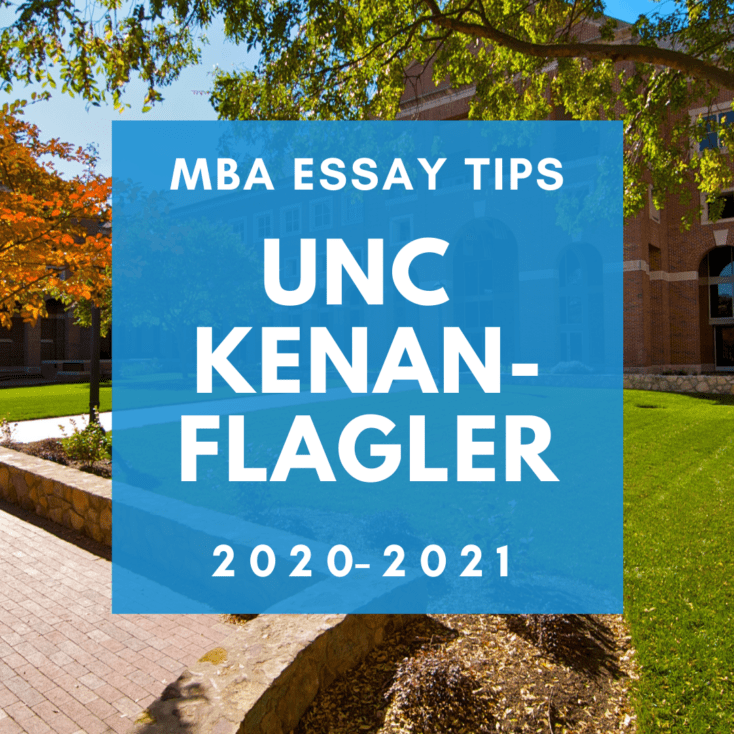 UNC’s Kenan-Flagler Business School offers a flexible program with multiple ways to earn an MBA. The Kenan-Flagler application essay questions focus on learning more about you. At UNC, a world-class university offers resources beyond the MBA program. There are several global immersion opportunities with each program at Kenan-Flagler. Also, students love the environment in Chapel Hill. It is a beautiful and lively college town. Further, students enjoy the friendly and welcoming atmosphere at UNC’s MBA program. For assistance with your UNC Kenan-Flagler application, contact Stacy Blackman Consulting today. And to learn more about the Kenan-Flagler UNC MBA program, visit the school website. Question 1: Required Please respond to the questions below that will assist us in learning more about you (500 words): • What are your immediate career goals? • How will you benefit personally and professionally from earning an MBA at UNC Kenan-Flagler? • As the business world continues to evolve, circumstances can change that can guide you in a different direction. Should your goals that you provided above not transpire, what other opportunities would you explore? This first essay in the Kenan-Flagler application asks a basic career goals question and also for a “Plan B.” Short term career goals are the focus of the initial question. Show a clear link between your immediate career goals and your MBA. UNC provides individual career guidance and has a recruiter focus. Therefore, focus on the short term helps the admissions committee learn if you are realistic about your career goals. This question helps to explain why a UNC MBA will benefit you personally and professionally. School research will help you to answer this question. Also, include specific details about classes, professors, and clubs. Beyond yourself, think about the contribution you will make to the UNC MBA community. First, think about clubs or activities you will join. Second, how will you enhance the experience of other students? Everyone’s life takes unexpected twists and turns. For that reason, this UNC MBA application asks about your Plan B. Consider how your experience and MBA could lead you on different paths. For example, you want to work in consulting and couldn’t land a job at the firm you prefer. Instead, you could pursue a role as an in-house strategy in your target long-term industry. Above all, make sure that you have career goals that require an MBA.  Question 2: Required Your response should be no longer than 300 words and should address the following question: 2020 brought many defining experiences, including: a global pandemic, changes to learning and working environments, and calls for social justice and racial equity. At UNC Kenan-Flagler Business School, these experiences propel us to strengthen efforts to increase the diversity in our community, to create a more equitable and inclusive learning environment and to teach our students to manage diversity, equity and inclusion. What have you learned about diversity, equity and inclusion in 2020? Please share your experience and what you learned about yourself as a leader. Tell us how you changed or would like to change your leadership style? If you were not leading a team, tell us what you learned at your level about diversity, equity and inclusion. How do you expect to continue that growth in the MBA program? This year has been challenging in many ways. One area is diversity, equity and inclusion, the focus of this essay. Thoughtful and nuanced leadership is vital to your UNC MBA application. If you work in a large organization, your workplace may be focused on this topic. In that case, discuss what you have done and learned. However, if you are not actively involved, describe the process of learning from the effort. Also, make sure you explain how your leadership style has changed as a result. If you are not a leader now, how can you positively impact the environment as a team member? Describe any changes in your approach. On the other hand, maybe your organization has not been focused on the topic. So, what have you done personally to learn more or advance diversity, equity, and inclusion? For example, if you have read books, discussed with colleagues, or heard speakers on the topic this year. What have you considered doing differently as a leader as a result? Finally, how do you want to continue this work at UNC? Question 3: Optional The optional essay (for all applicants) provides an opportunity to share additional information not presented elsewhere in your application with the admissions committee. In 150 words or less, consider addressing any of the questions below: • If you have not completed coursework in the core business subjects (calculus, microeconomics, statistics, financial accounting), how will you prepare yourself? • What conditions caused you to experience inconsistent academics, gaps in work, or low standardized test scores? • How have you chosen your recommenders? This Kenan-Flagler application essay question suggests a few areas you could address. First, identify any gaps in your overall application. Then, consider if you need to explain those gaps. For example, if you do not have the required classes listed, you may have learned the same topics at work. If you do not have either work or school experience, consider registering for continuing education classes. Remember, substantial work experience can offset prior academic challenges. Or, if you have taken courses since undergrad and received high grades, that will help, too. Gaps in work can be concerning to many applicants. However, taking time to travel, spending time with family, or changing careers are all good reasons for a gap. And, if you got laid off or your company had challenges, it’s an opportunity to describe how you handle adversity. Finally, explain recommenders other than a current or former supervisor. Ideally, your recommender can speak to your abilities and achievements. Therefore a recommender that was not a supervisor might add a different view. Either way, explain the situation clearly. Reapplicant Essay If you are re-applying to the program, we appreciate your continued interest in UNC Kenan-Flagler. We require a complete application in addition to a brief essay (100 words or less) that describes how your application differs from your previous submission and that alerts us to new test scores, a recent promotion, or other areas that demonstrate how you have strengthened your candidacy. The Kenan-Flagler application requires re-applicants to complete all of the required essays. You should take 100 words to describe what has changed since your last application. Ideas for this essay include updates like a promotion or new job. If you don’t have a resume change, consider less apparent updates like a change in career focus. Or, you may have learned new skills in a stretch project at work. Overall, this is your chance to show how any change since last year makes you a stronger candidate. The post Tuesday Tips: Kenan-Flagler Application Essay Tips for 2020-2021 appeared first on Stacy Blackman Consulting - MBA Admissions Consulting. |
| FROM Stacy Blackman Consulting Blog: Tuesday Tips: Tepper MBA Essays and Tips 2020-2021 |
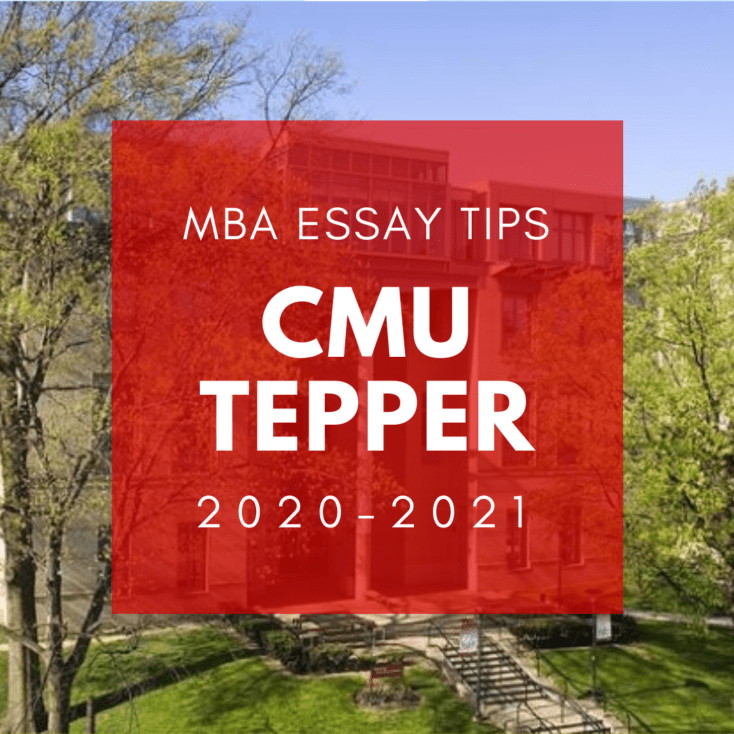 Carnegie Mellon University’s Tepper School of Business has published the MBA application for this admissions cycle. Your resume, transcripts, recommendations, and other application data will tell the story of your career and academic accomplishments. Therefore, your Tepper MBA essays should showcase your character and personality. Tepper is an interdisciplinary program with centers like Sustainability, Architecture, Technology. CMU Tepper also has a startup incubator. The Tepper Quad delivers a campus with several interconnected parts. As you prepare your Tepper MBA essays, keep in mind that Tepper is looking for diversity. Finally, the best candidates want a tight-knit community and analytical course structure. Questions about your Tepper MBA essays? Contact us for a free analysis of your candidacy. To learn more about the CMU Tepper MBA program, visit the program website. Post-MBA Goals We know that you have a lot to tell us but to keep it fair, your answers are limited to 150 words. 1. What is your professional goal immediately following graduation from Tepper? 2. What other role would you consider? In other words, what is your Plan B? This question is part of the data form for your Tepper MBA application. Because you have limited space, focus on clarity as you explain your career goal after graduation. If you have room, you can provide context, but use the field primarily to give detail about your plans. For example, if you are interested in consulting after graduation, explain what kind of consulting, type of firm, and even industry. For the second part of the question, think about how your background and MBA can prepare you for multiple paths. What other options might you have? For instance, if you are preparing for a career in strategy, you can work in various industries. Many different companies require strategic focus. Required Essay The Tepper community is dynamic and unique. Each community member’s individual journey has shaped them into classmates who are collaborative, supportive, and inclusive. Describe how you have overcome adversity during your journey. What did you learn about yourself and how has that shaped who you are? (Maximum 350-500 words.) CMU Tepper has a small and close-knit community. Because this factor is so important, the only required question in this set of Tepper MBA essays is about your character as a person. The Tepper admissions committee is looking for the best fit. Therefore, your character and background are essential. Think about the experiences that have shaped who you are. Everyone has faced challenges. What were yours? For instance, you could have faced personal challenges like poverty or family loss. Or, you might have struggled in school or work. Most importantly, how did you overcome this adversity? This essay allows you to describe your past experiences. Also, explain how you have become a person who is collaborative, supportive, and inclusive. As a person who has faced challenges, how do you recognize and support others? Finally, consider how you will bring this support to the Tepper community. Optional Essay Is there anything else that you would like to share with the Admissions Committee as we evaluate your application? If you believe your credentials and essays represent you fairly, you should not feel obligated to answer this question. This essay is intended to provide a place for you to add information that you think is important but is not covered elsewhere in the application. This could include clarification of your employment or academic record, choice of recommenders or helpful context for the admissions committee in reviewing your application. This optional essay gives you the space to explain any gaps in your application. Some areas you could write about are academic issues. Or, a recommendation that is not from a current or former supervisor. Another area is gaps in work experience. Explain each issue clearly, and then describe how you have improved. For example, perhaps you were unfocused during undergrad but have since made great strides professionally. Or, you faced layoffs or a struggling industry that created resume gaps, but you now have career focus. In each case, highlight the positive. Stay future-oriented and explain why the issue won’t be ongoing. One more thing One more question from the Admission Committee – just for fun! List an interesting fact about yourself that you’d like to share with your future Tepper classmates (P.S. – 1 or 2 sentences will be just fine) The final question from Tepper admissions is in your application data form. One more thing is a quick response designed to give personality to your application. Think about unique parts of your background or interesting experiences. For example, have you traveled to any remote locations? Do you have a surprising hobby? Do you have expertise in anything unusual? This fact should be entertaining and add insight into your personality and background. The post Tuesday Tips: Tepper MBA Essays and Tips 2020-2021 appeared first on Stacy Blackman Consulting - MBA Admissions Consulting. |
| FROM Stacy Blackman Consulting Blog: B-Schooled Episode #22: What to Do (and Not Do) After You Submit |
 After you submit your MBA applications, should you contact the admissions committee with updates on your candidacy—like if you got a promotion, or a raise, or landed a new client for your company? What should you do if you find an error in your materials? Should you start preparing for your interviews now? In this episode, we answer those questions and more. We also advise listeners on the best way to make use of their time between submission deadlines and their interviews. Listen to B-Schooled episode #22 here, or on any of the podcast apps listed below. B-Schooled is available on most major podcast apps, including: Apple Podcasts Spotify Stitcher TuneIn Please be sure to subscribe to B-Schooled so that you don’t miss a thing. If there’s something you’d like for us to cover in a future episode, please email podcast@stacyblackman.com. We’d love to hear from you! The post B-Schooled Episode #22: What to Do (and Not Do) After You Submit appeared first on Stacy Blackman Consulting - MBA Admissions Consulting. |
| FROM Stacy Blackman Consulting Blog: Tuesday Tips: Kelley School of Business Essays, Tips for 2020-2021 |
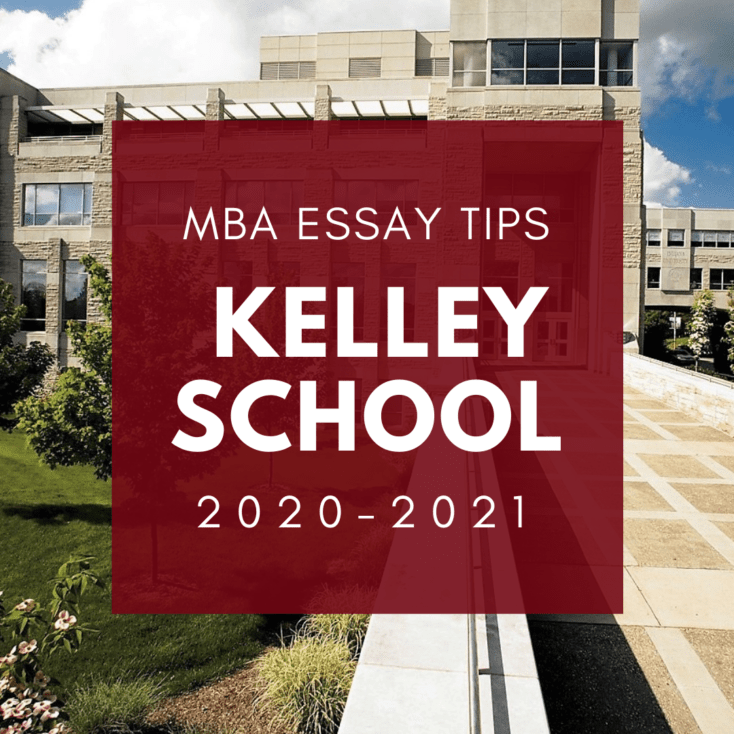 The Kelley School of Business at Indiana University is a top-tier business school with an innovative program that cultivates strong recruiting relationships with companies. These Kelley School of Business essays focus on understanding you. From the moment you decide to attend Kelley, you will be focusing on your career and leadership development. For example, even before you start classes, you will be part of an orientation program called Me Inc. to help you refine your career goals. After you start school, you will continue to receive personalized coaching, leadership training, and real-world industry projects. This will help you focus on the right career path and job openings for your internship and full-time job search. Consider these factors as you prepare your answers to these Kelley School of Business essays. Kelley’s program is unique and close-knit, so your fit with the program and your desire to participate fully will be important to the admissions committee. Kelley has an academically strong class of students. A large number come from outside the United States, and the diverse class also includes a significant number of women. To learn more, visit the Kelley School of Business website. Need help with your Kelley School of Business essays? Contact us for a free evaluation. REQUIRED MBA ESSAYS Essay One: Discuss your immediate post-MBA professional goals. How will your professional experience, when combined with a Kelley MBA degree, allow you to achieve these goals? Should the short-term goals you have identified not materialize, what alternate career paths might you consider? (500 words) Kelley’s curriculum is tailored to help you reach your career goals. Therefore, entering Kelley with a career vision will help you take full advantage of the program. For example, students can specialize almost immediately by choosing one of the first-year Academies in your industry area of focus. Think about these opportunities at Kelley when you answer this career goals question. And, be specific about how you see yourself using the tools available. When you discuss your career experience in this essay, make sure that you are focusing on the most important moments in your career. That means, not reciting your jobs like a resume. Consider the times when you had to stretch to accomplish the goals set out for you. Such as, when you had to step up to be a leader, or when you learned more about yourself and your aspirations. Those are the stories that will explain how your professional experience will help you achieve your goals.  The second half of this question deals with your flexibility around your career goal and your ability to handle change. Change is constant in most industries, and your ability to recognize opportunity, even outside your anticipated career goals, will be critical to your success. Therefore, think about the core elements that are important to you in forming your career goals and how they can be realized in different career opportunities. For example, perhaps you are passionate about the food industry and want to be involved in updating the world of packaged goods. However, you could imagine pursuing either a strategy role or a finance role within consumer packaged goods. Or, you love marketing but could see yourself either marketing a film or a jewelry line. In this case, the most important factor is practicing the craft of marketing. Showing that you can pivot while staying true to your core values and interests will position you well in this set of Kelley School of Business essays. Essay Two: Please respond to one of the following short essay prompts. (300 words) My greatest memory is… I’m most afraid of… My greatest challenge has been… I’m most proud of… While the prior essay focuses on your career path and goals, this essay is about your core personal motivations. Consider, what are the formative moments in your life? The story you choose to tell in this essay will be revealing to the admissions committee, and will show your personality and values. Therefore, think about the moments in your life when you have changed or matured. Was there an experience that led you to learn more about yourself? Or, perhaps you interacted with someone who challenged or inspired you. Another experience might have been travel outside of your comfort zone. For example, either literally outside your home country or in a transition like leaving home for college. Option b, “I’m most afraid of…” is the one prompt that does not specifically call on a past experience. However, it’s likely that your fear has its roots in a formative moment in your life. Once you have a story to tell, make sure you are explaining why this moment is important to you. To clarify, you can narrate your thoughts, reactions, and opinions as you retell the story. Another idea is to take time at the end of the essay to reflect upon what you learned and why it was important to you.  Essay Three: Share a brief fact about yourself that your classmates would find interesting, surprising, or noteworthy. (25 words) The admissions committee has read your career goals, read about a pivotal experience, and likely has reviewed your resume and application fact sheet. What you describe in this Kelley School of Business essay is something that didn’t come up in any of those demographic or background data sheets in your application. Also, it’s something short and easy to explain in 25 words. Perhaps you were a competitive swimmer in high school but didn’t pursue it in college. Or, your grandmother was from Sweden and taught you traditional cooking techniques that no one else in your life knows. Maybe you are heavily involved in a hobby that has impacted your life. If you are struggling to come up with an interesting or surprising fact, this is a great question to poll friends and family about. Because your friends and family likely know the elements of your background and personality, this can be an effective way to come up with a unique story. Those elements are deeper than your resume or application fact sheet. Optional Essay: Is there anything else you think we should know as we evaluate your application? If you believe your essays and credentials represent you fairly, you shouldn’t feel obligated to answer this question. (300 words) The last of the Kelley School of Business essays is open-ended. Such a question allows you to add almost any story or additional background data you would like. However, before you take full advantage of the extra space, make sure you are truly adding to your application. If you have done the work on a comprehensive resume, excellent recommendations, and finely-honed essays, you likely don’t need this space. Finally, if there is anything to explain in your Kelley School of Business essays, use this space to do it. It could be a poor grade in a quantitative course in college, academic probation, or the lack of a recommendation from a current supervisor. In any case, make sure you are focused on explanations rather than excuses. Provide solid, recent evidence that you have done better since the event. The post Tuesday Tips: Kelley School of Business Essays, Tips for 2020-2021 appeared first on Stacy Blackman Consulting - MBA Admissions Consulting. |
| FROM Stacy Blackman Consulting Blog: B-Schooled Episode #23: Admissions Test (and Other) Anxieties |
 In this episode, we welcome Jay Bryant, a former MBA admissions director who is now a liaison between business schools and ETS, the company behind the GRE® General Test. Our host Erika and Jay will have a discussion about:
Listen to B-Schooled episode #23 here, or on any of the podcast apps listed below. B-Schooled is available on most major podcast apps, including: Apple Podcasts Spotify Stitcher TuneIn Please be sure to subscribe to B-Schooled so that you don’t miss a thing. If there’s something you’d like for us to cover in a future episode, please email podcast@stacyblackman.com. We’d love to hear from you! The post B-Schooled Episode #23: Admissions Test (and Other) Anxieties appeared first on Stacy Blackman Consulting - MBA Admissions Consulting. |
| FROM Stacy Blackman Consulting Blog: MIT Sloan Standardized Test Policy for 2020-2021 |
 The MIT Sloan School of Management says it won’t require standardized test scores for the upcoming admissions cycle. Chiefly, because the ongoing pandemic continues to present challenges for applicants to take a standardized test. The admissions team wanted to address potential inequities for applicants affected by limited re-opening of testing centers worldwide. Here’s what the school had to say about the decision: The AdCom team will review applications holistically and take into account many different factors in the application. It will review submitted material “as is and without negative inferences.” The move affects multiple programs. Namely, the MBA, MBA Early Admission, Leaders for Global Operations, Sloan Fellows MBA, Master of Finance, and Master of Business Analytics programs. MIT Sloan has also made this decision out of concern for applicants with compromised immune systems who cannot safely sit for an exam. Additionally, the AdCom expressed concern about the possibility of new test center closures resulting from a second COVID-19 wave. MIT Sloan says this decision is an example of principled leadership. Also, the school believes it is simply the right thing to do. We are committed to making the best and most informed decision and feel confident that comparable factors (such as grades, undergraduate majors, advanced degrees, professional certifications, non-degree coursework, etc.) give us the data we need to make an admissions decision. Applicants should note this change applies only for the 2020-2021 admissions cycle. MIT Sloan has one of the highest ratios of applicants per seat available among business schools in the world. The school does not expect this update to change that. Rather, the admissions committee feels it will provide a “level playing field” for all applicants, no matter how this pandemic has affected their lives. The post MIT Sloan Standardized Test Policy for 2020-2021 appeared first on Stacy Blackman Consulting - MBA Admissions Consulting. |
| FROM Stacy Blackman Consulting Blog: Why Generalists Have More Career Success |
 “Fresh ideas from the Blacklight” SBC’s Weekly Newsletter for Professionals As you mentally map out your career path, an obvious question immediately crops up. Professionally speaking, is it better to be a generalist or a specialist? At first glance, it would appear becoming a specialist is the key to greater success. After all, it signals expertise in your field. And who doesn’t want to be considered an expert? Upon closer inspection, though, we see that generalists may have the upper hand. According to bestselling author David Epstein’s book Range: Why Generalists Triumph in a Specialized World, sometimes, finding your niche too early can hinder your success. He argues that our greatest strength is the ability to think broadly. In his 2019 interview on the Knowledge@Wharton podcast, Epstein explained, “The more varied your training is, the better able you’ll be to apply your skills flexibly to situations you haven’t seen.” Generalists go through a lengthy “sampling period” in their careers. During this time, they gain broad skills that they can scaffold for later learning, he said. By spending time learning about their interests and abilities, generalists often surpass their specialized peers, who tend to plateau at lower levels, Epstein added. Frogs vs. Birds Rest assured, Epstein isn’t saying we don’t need specialists. He used an analogy by physicist Freeman Dyson, who said we need both frogs and birds. “The frogs are down in the mud looking at the granular details of everything,” he explained. “The birds are up above and don’t see those details, but they can see multiple frogs and can integrate work.”  As a culture, we need to shed our inclination to tell everyone to become frogs and no one to be birds. “That makes us inflexible, and all of our information is coming out of context. I think we need both,” Epstein said. Hey generalists: Look for a match quality To be honest, most of us don’t have intuitive insight into our talents and interests. Economists have coined the term “match quality” to describe the degree of fit between a person’s ability and their interest in the work they do. We learn about our interests and strengths only by trying things. Epstein cited ample research showing how changing your interests can maximize your match quality. “You can do all the strength finder quizzes you want, but your insight into yourself is constrained by your roster of previous experiences,” he said. We need a period of zig-zagging and experimentation to discover a better match and goal. But I thought I was supposed to have grit? Ostensively, it would seem that this quest for match quality flies in the face of another highly-touted quality of late: grit. We’ve heard that perseverance is the characteristic we need to instill in ourselves and seek in others. But Epstein believes that a lot of experimenting does not mean you have no grit. “That’s not lost time. You haven’t wasted it,” he said. “It doesn’t mean that transitioning is easy, but you can take what you learned in one domain and bring it to the other.” *** Did you enjoy this post about the virtues of generalists? It originally appeared on the Blacklight, our weekly newsletter for professionals. At the Blacklight, we aim to illuminate with every dispatch that lands in your inbox. If you’re thirsty for guidance to help you slay it at work or as a student and move your goalposts closer, sign up today! The post Why Generalists Have More Career Success appeared first on Stacy Blackman Consulting - MBA Admissions Consulting. |

|
|